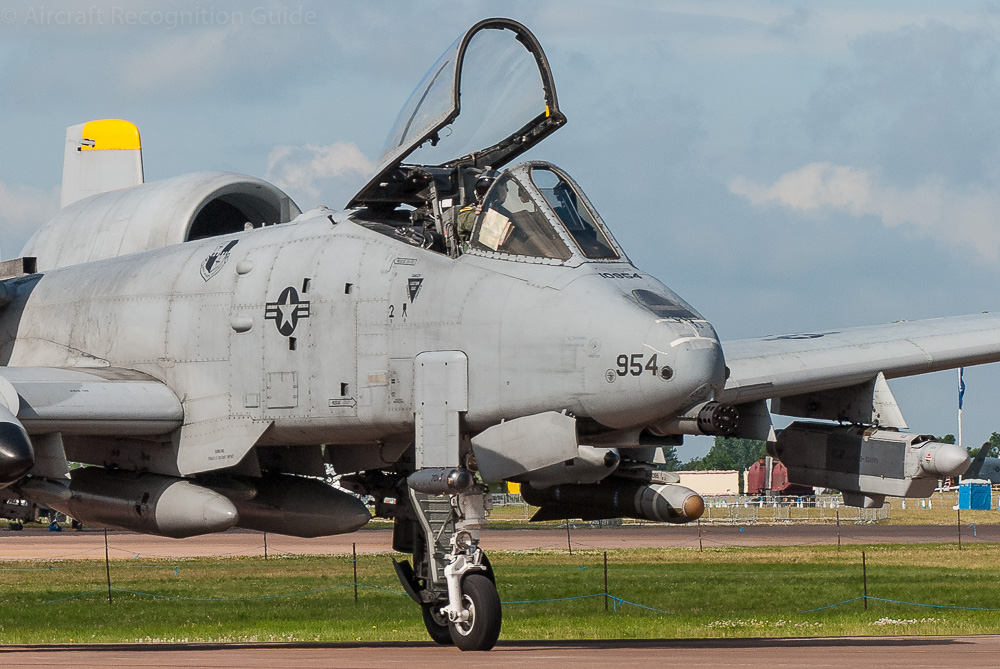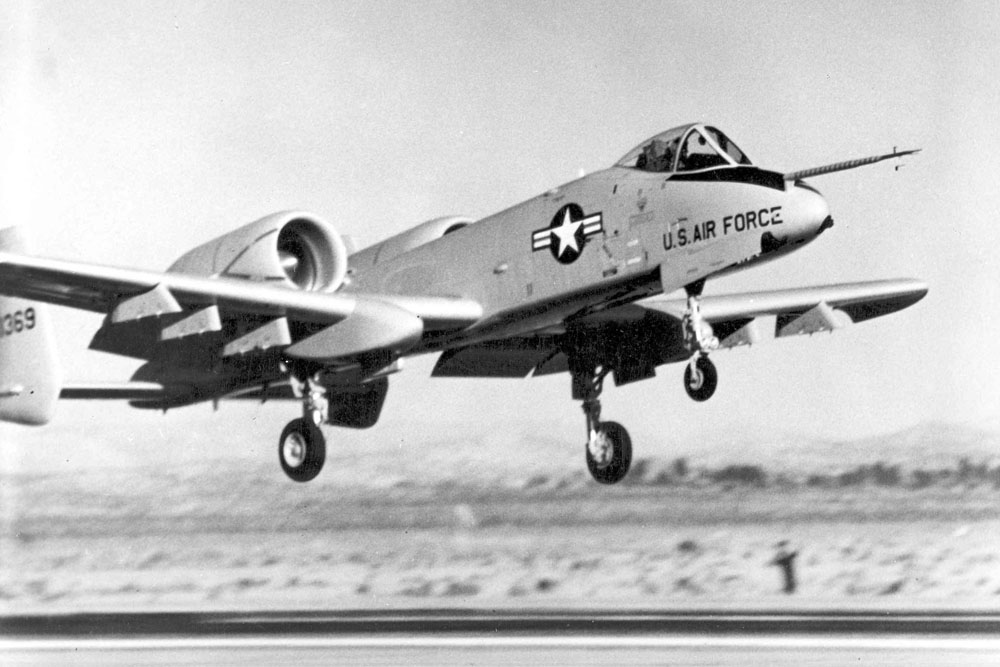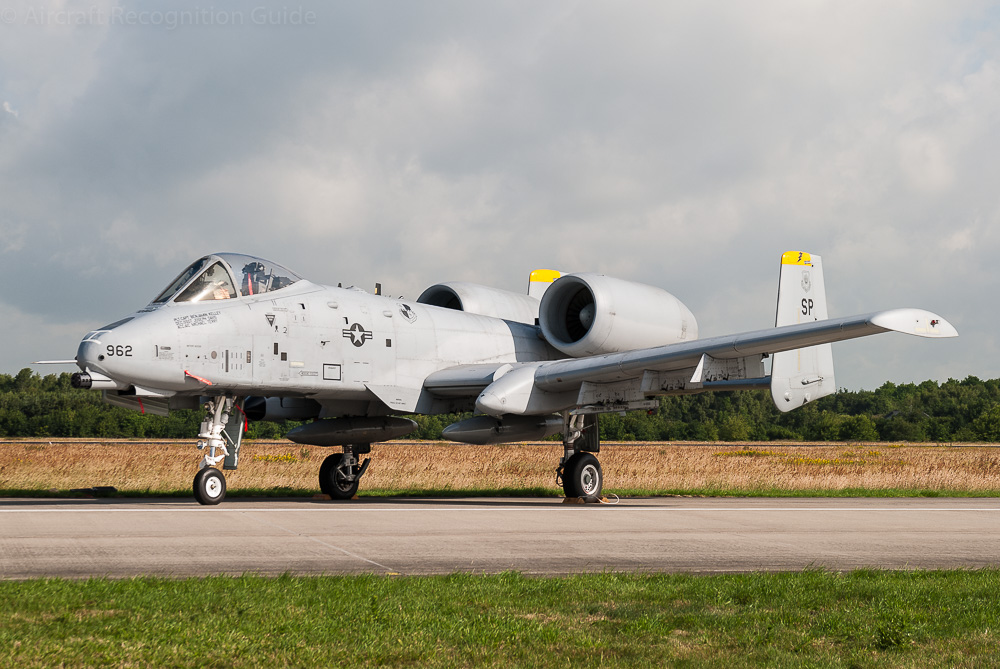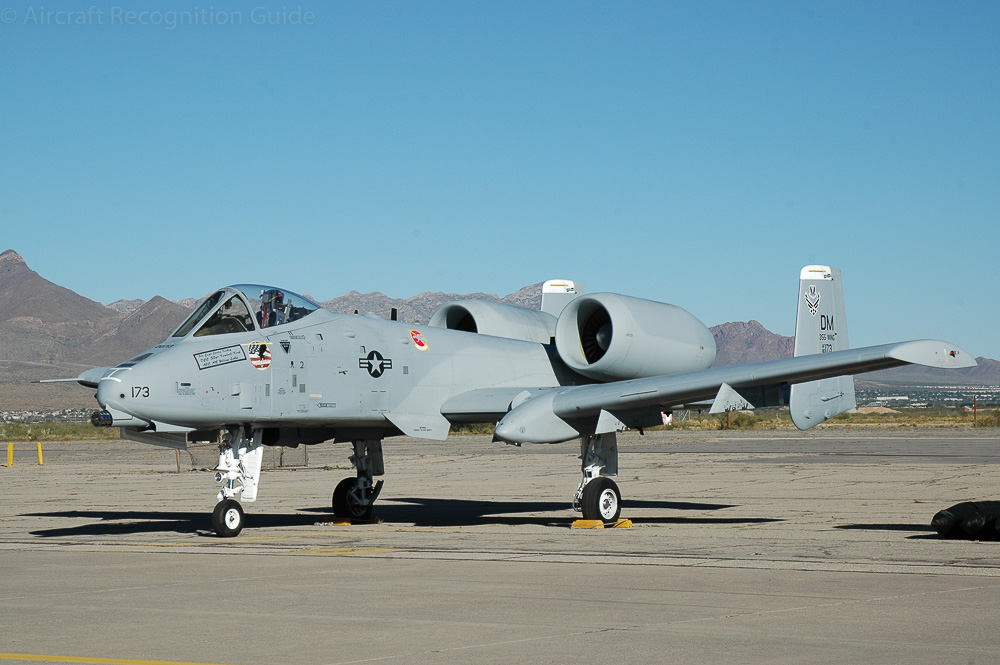
Fairchild-Republic A-10 Thunderbolt II
The Vietnam War made it clear that the Douglas A-1 Skyraider needed a more potent successor. Hence the USAF started the A-X competition for a new close air support fighter aircraft. The YA-10A was the winner against the Northrop YA-9A. It received the official name Thunderbolt II, but is often nicknamed Warthog or simply Hog.
The A-10 is hard to miss when it comes to recognition. It has straight, low mounted wings with many storage points under them. The main wheels partially retract forward in pods under the wings. Up front is a high mounted bubble canopy. The 30 mm cannon sticks out of the nose like a Cuban cigar. It takes up so much room that the nose gear is placed right of the centre. Two large diameter jet engines are attached to the side of the rear fuselage. To shield the hot exhausts the A-10 has an H-tail. All together this design makes the Thunderbolt II unique.
YA-10A
Twelve pre-production aircraft were built, designated as YA-10A. It can mainly be recognised by the absence of the big cannon in the nose. They do have a long pitot boom on the nose.
The YA-10A pre-production Thunderbolt II has no cannon, but does have a large boom on the nose, for testing purposes.
A-10A & OA-10A
The full production aircraft A-10A of course got their big cannon and a refuelling receptable in place of the testing probe. Additionally they have a divided nose gear door (now with part at the back of the nose gear) and fins at the side of the fuselage, near the wing leading edge.
OA-10A is the designation for A-10As used for airborne forward air control. They are the same as an A-10A used for direct combat.
YA-10B
The YA-10B was a development aircraft for a two seat night/adverse weather combat aircraft. This larger canopy directly the main recognition point of the version. Just one aircraft was built.
The YA-10B has a two seat cockpit with a larger canopy than the A-10A. (photo: John Bennett)
A-10C
To keep the A-10 going for many more years the cockpit received an upgrade to bring it into the 21st century. The many "steam" gauges have been replaced by displays. In addition, the wing skins were replaced. From the outside both changes are not visible though, so it is hard to distinguish it from the older version.
Confusion possible with
Because the A-10 has such a unique appearance, it is very unlikely that you confuse it with another aircraft.






